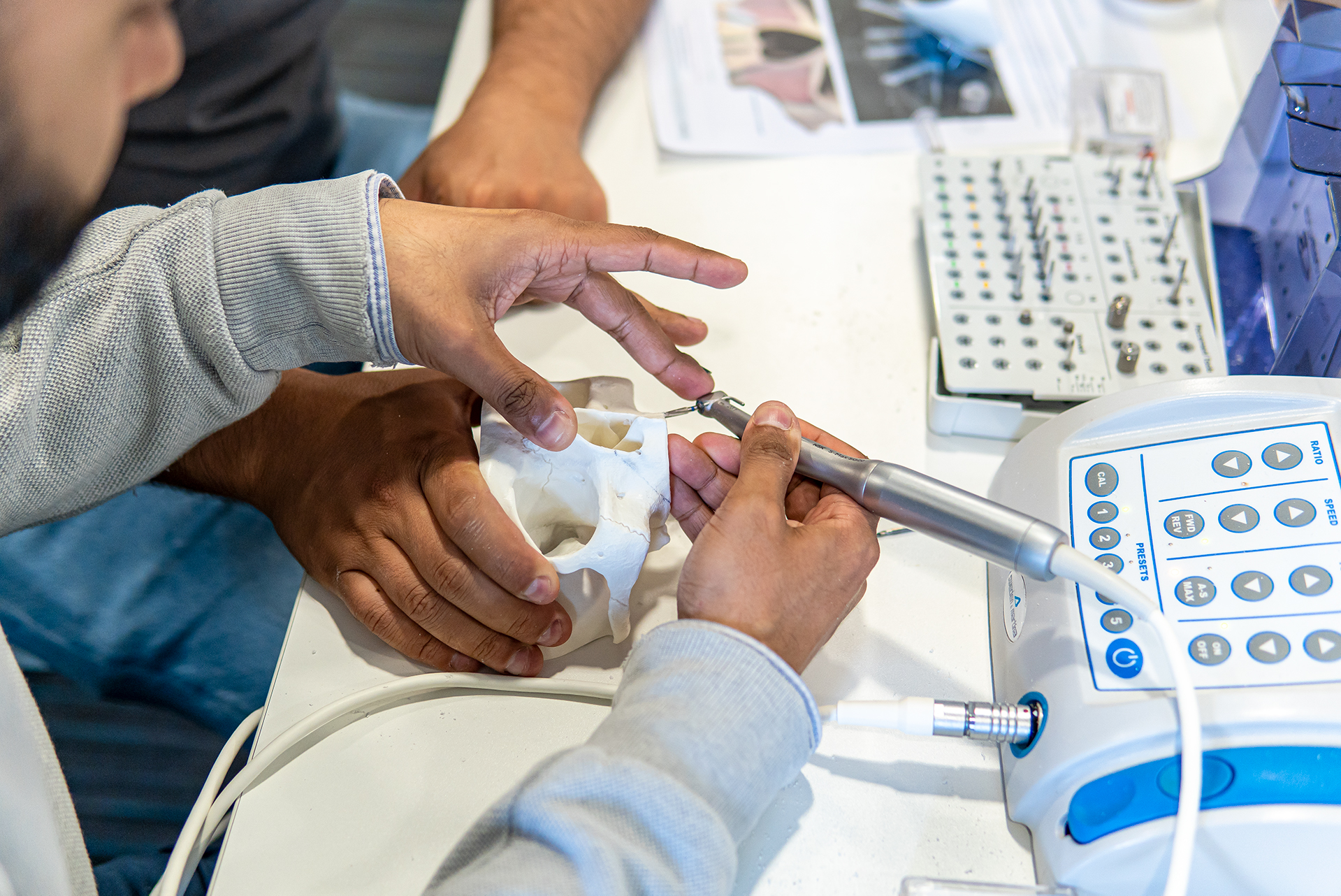
Cemal Ucer explains how you can make implant dentistry an effective and profitable element of your provision in practice.
To successfully progress in your career, there are many factors to consider other than simply acquiring new skills. Although the acquisition and development of new clinical capabilities is the first stepping stone towards expanding your services and truly thriving, it is not the only one needed.
You will also need to think about and tailor how the business is run, structured and marketed to make the very most of the new services you can provide. This is particularly important for clinicians introducing dental implants into their practice, as only by planning ahead will you be able to make the most of your newfound skills.
Workflow
Before you can provide any implant treatment in practice, you’ll need to have the basics in place. Consider which implant system you will be using and connect with the supplier to ensure they can cater to you efficiently. There may be introductory offers on first orders, or your local representative may be able to provide advice on which solutions could work best for your inventory when starting out.
You may also look to invest in some digital solutions if you haven’t already for other areas of dentistry. For example, an intraoral scanner and the accompanying implant planning software. As few dentists who are new to implant dentistry will have access to an in-house CBCT scanner, it is just as important to find a practice that you can collaborate with for referred scans when they are required.
Team
No type of dentistry is delivered by one member of the team, and this is even more applicable in implant dentistry. This means that training the team around you is just as crucial as undergoing training yourself. Everyone from your dental nurse(s) to your treatment coordinator, practice manager and dental hygienist/therapist will likely benefit from some support.
They will need to know how to talk about the implant treatments available, the benefits they offer patients and the key risks to be aware of. Any team members who will be heavily involved in helping patients throughout the implant journey, from placement to long-term maintenance, will also need the clinical and communicative skills to provide the necessary care.
Fellow dentists in the practice should also be kept informed of the implant services you provide, as they will be key to creating an internal referral pathway. This will also be important for marketing dental implants to existing patients, which is a staple for establishing and growing the implant business.
External marketing
Beyond this, it is necessary to promote the dental implant treatment available outside of the existing patient base. Some marketing activities can be expensive, so it’s useful to start small and focus on those channels that provide the greatest return on investment. Social media can be beneficial as a mostly free platform to advertise services and connect with patients near and far.
From here, consider direct marketing avenues – yes, this still works very well in some areas! Additionally, working with other local companies, such as leisure centres, gyms, spas, golf clubs, and hosting events are great ways to advertise.
Once you start treating patients, be sure to request feedback and online reviews from happy customers so you can build a reputation for excellent treatment and patient experience. As many as 93% of consumers have reported that online reviews will influence their buying decisions. Reviews and word-of-mouth marketing are crucial for every dental business today.
Business plan
A business plan can be as simple or elaborate as you want it to be. When done right, it provides an effective way to plan how you will deliver new services and then keeps you accountable for its development. It’s a way of defining what you want to achieve, how you hope to grow and what milestones you aim to reach at what point.
It might simply outline how many implants you intend to provide in the next six, 12 or 24 months, how you will find new patients and the amount of time and money you plan to invest. Not only will this give you direction as your implant business gains momentum but it will also offer a benchmark by which to measure your success.

Clinical excellence
Of course, it goes without saying that you need to be both competent and confident to deliver the clinical treatment you are offering. Only by consistently providing clinical excellence and a smooth patient journey will you motivate people to choose you for their dental implant procedures. That’s why a successful career in implant dentistry will always begin with high-quality training that gives you the theoretical understanding and practical experience to perform relevant procedures effectively and safely.
Ucer Education offers an array of postgraduate training courses in collaboration with the ICE Dental Institute. Programmes are designed to combine theoretical and hands-on teaching with state-of-the-art digital technologies and firstclass facilities included.
If you are thinking about adding dental implants to your repertoire, make sure you consider all the aspects that will contribute to your success in this field. With good planning, excellent clinical skills, a well-trained team and the right workflow, you will be ready to really excel.
For references email [email protected].
Follow Dentistry.co.uk on Instagram to keep up with all the latest dental news and trends.
Adblock test (Why?)







